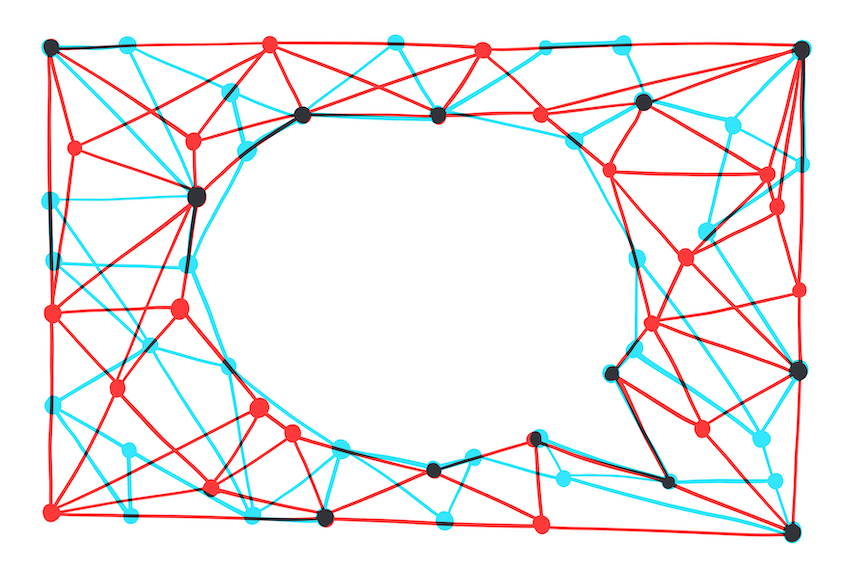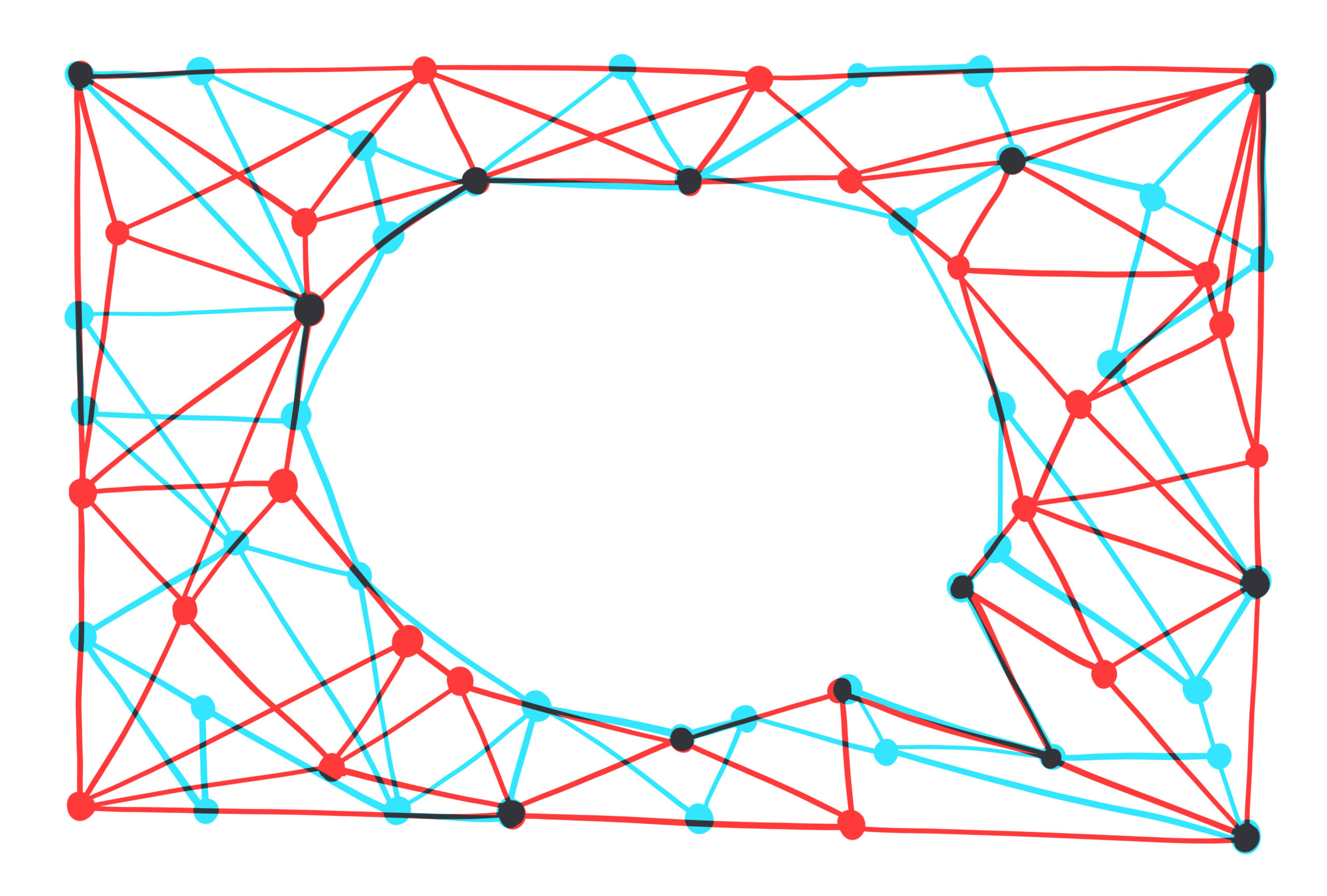Community newsletter
Recent articles
Neural recordings in freely moving mice; MBD5 variant
Researchers took to social media to discuss a new tool for recording brain activity in freely moving mice and a study linking a mutation in the gene MBD5 to epilepsy and intellectual disability. That and more in this week’s Community Newsletter.

Neural recordings in freely moving mice; MBD5 variant
Researchers took to social media to discuss a new tool for recording brain activity in freely moving mice and a study linking a mutation in the gene MBD5 to epilepsy and intellectual disability. That and more in this week’s Community Newsletter.
Neuropixels probe; sex differences in brain anatomy
Researchers on social media reacted to a new version of the Neuropixels probe and a study of sex differences in the brain. That and more in this week’s Community Newsletter.

Neuropixels probe; sex differences in brain anatomy
Researchers on social media reacted to a new version of the Neuropixels probe and a study of sex differences in the brain. That and more in this week’s Community Newsletter.
Cerebral cortex genetics; calcium imaging of astrocytes
This week on social media, researchers discussed a genome-wide association study of the human cerebral cortex, how astrocytes integrate calcium signals, and more.

Cerebral cortex genetics; calcium imaging of astrocytes
This week on social media, researchers discussed a genome-wide association study of the human cerebral cortex, how astrocytes integrate calcium signals, and more.
Mitochondria and anxiety; brain structure in autism
Researchers reacted to a study of brain mitochondria and behavior in mice and a study of brain structure differences in autism and other conditions. That and more in this week’s Community Newsletter.

Mitochondria and anxiety; brain structure in autism
Researchers reacted to a study of brain mitochondria and behavior in mice and a study of brain structure differences in autism and other conditions. That and more in this week’s Community Newsletter.
Cognitive mapping; PTEN in peripheral nerves
Researchers took to social media to discuss how cognitive maps form during learning. There was also talk about a study of peripheral nerves in mice missing PTEN, an autism-linked gene. That and more in this week’s Community Newsletter.

Cognitive mapping; PTEN in peripheral nerves
Researchers took to social media to discuss how cognitive maps form during learning. There was also talk about a study of peripheral nerves in mice missing PTEN, an autism-linked gene. That and more in this week’s Community Newsletter.
NeuroDev retrospective; repetitive behaviors in fragile X mice
A look back at NeuroDev’s first year gathering genomic and phenotypic data in Kenya and South Africa and a study on an underlying cause of repetitive behaviors in fragile X model mice absorbed researchers’ attention on social media this week. That and more in this week’s Community Newsletter.

NeuroDev retrospective; repetitive behaviors in fragile X mice
A look back at NeuroDev’s first year gathering genomic and phenotypic data in Kenya and South Africa and a study on an underlying cause of repetitive behaviors in fragile X model mice absorbed researchers’ attention on social media this week. That and more in this week’s Community Newsletter.
Sensory traits in fragile X; epidurals and autism
This week on social media, researchers discussed research on sensory issues in fragile X mice, and they considered yet another study of epidurals and autism. That and more in this week’s Community Newsletter.

Sensory traits in fragile X; epidurals and autism
This week on social media, researchers discussed research on sensory issues in fragile X mice, and they considered yet another study of epidurals and autism. That and more in this week’s Community Newsletter.
Stress response in neurons; quantitative bioimaging tutorial
Researchers discussed a study of the integrated stress response in fragile X syndrome and a new how-to guide for quantitative bioimaging — plus more in this week’s Community Newsletter.

Stress response in neurons; quantitative bioimaging tutorial
Researchers discussed a study of the integrated stress response in fragile X syndrome and a new how-to guide for quantitative bioimaging — plus more in this week’s Community Newsletter.
‘wildDISCO’ whole-mouse mapping; high-resolution imaging of living brain tissue
A new technique to map the entire body of a mouse and a high-resolution 4D imaging method for living brain tissue samples piqued researchers’ interest on social media this week — that and more in this issue of Community Newsletter.

‘wildDISCO’ whole-mouse mapping; high-resolution imaging of living brain tissue
A new technique to map the entire body of a mouse and a high-resolution 4D imaging method for living brain tissue samples piqued researchers’ interest on social media this week — that and more in this issue of Community Newsletter.
Community Newsletter: Neuroimaging study size; fragile X RNA
This week on social media, researchers discussed sample size in neuroimaging studies and the potential of antisense oligonucleotides to restore the protein lost in fragile X syndrome.

Community Newsletter: Neuroimaging study size; fragile X RNA
This week on social media, researchers discussed sample size in neuroimaging studies and the potential of antisense oligonucleotides to restore the protein lost in fragile X syndrome.
Explore more from The Transmitter
Neuroscience has a species problem
If our field is serious about building general principles of brain function, cross-species dialogue must become a core organizing principle rather than an afterthought.

Neuroscience has a species problem
If our field is serious about building general principles of brain function, cross-species dialogue must become a core organizing principle rather than an afterthought.
This paper changed my life: Ishmail Abdus-Saboor on balancing the study of pain and pleasure
A 2013 Nature paper from David Anderson’s lab revealed a group of sensory neurons involved in pleasurable touch and led Abdus-Saboor down a new research path.

This paper changed my life: Ishmail Abdus-Saboor on balancing the study of pain and pleasure
A 2013 Nature paper from David Anderson’s lab revealed a group of sensory neurons involved in pleasurable touch and led Abdus-Saboor down a new research path.
Sex bias in autism drops as age at diagnosis rises
The disparity begins to level out after age 10, raising questions about why so many autistic girls go undiagnosed earlier in childhood.

Sex bias in autism drops as age at diagnosis rises
The disparity begins to level out after age 10, raising questions about why so many autistic girls go undiagnosed earlier in childhood.